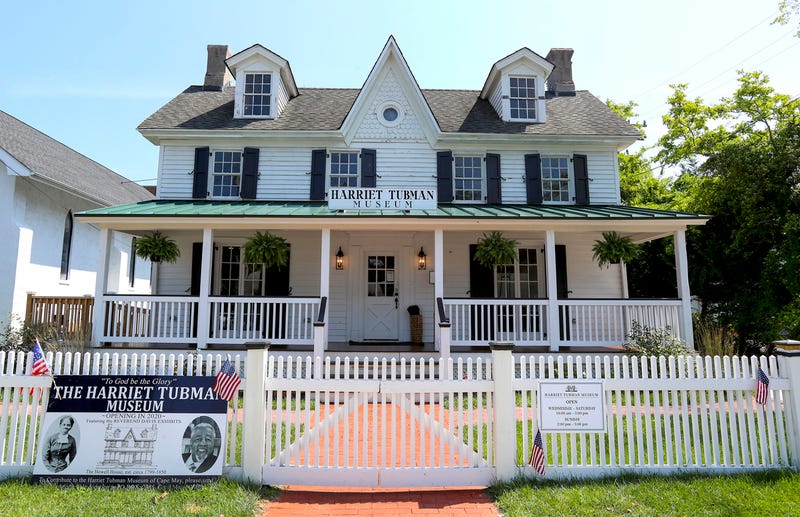
PHILADELPHIA (KYW Newsradio) — Some of the streets you take to work or to get coffee could very well be the same ones Harriet Tubman traveled while guiding “passengers” to freedom.
During Black History Month, KYW’s podcast, The Jawncast, explored the impact that Tubman and the Underground Railroad had on our region and how they’re still impacting us today, despite some heated debate over how to honor her legacy.
Here are a few places where you can see the history and impact that Tubman and other abolitionist leaders had and still have on communities in Philadelphia and New Jersey.
The Harriet Tubman Museum of New Jersey
The museum sits on Lafayette Street in Cape May, where many abolitionist leaders spent their summers. Stephen Smith, one of the founders of the Anti-Slavery Society, owned the house across the street from where the museum is now and would often be found hosting meetings there with people like Tubman and William Still, the “father of the Underground Railroad.”
According to the museum’s executive director, Cindy Mullock, Cape May was approximately 30% Black from the 1920s to 1930s. “[It] had an incredibly thriving community of Black-owned businesses,” she explained.
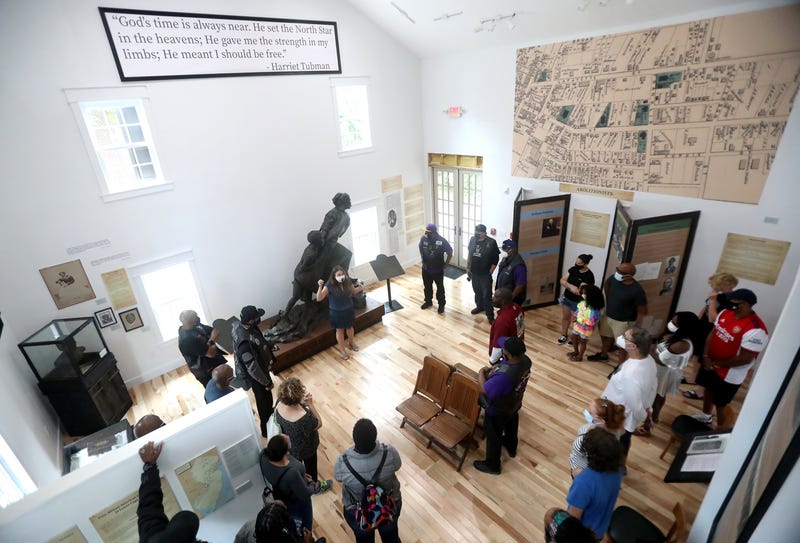
Through gentrification and urban renewal projects, a lot of the Black population was pushed out. That’s part of why Mullock works so hard to preserve and display the town’s history. She’s proud of how New Jersey recognizes its past at a time when Black history education is a hot topic of debate.
“I think it is maybe somewhat underplayed that New Jersey has, in a bipartisan way – 100% unopposed – supported the museum and supported its educational efforts,” she says.
For tour schedules, tickets and more information, check out the museum’s website.
The Johnson House Historic Site
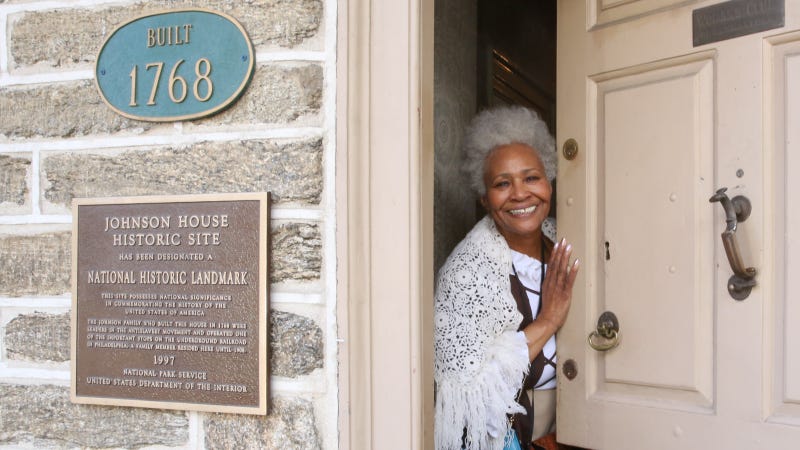
The Johnson House in Germantown is one of two National Historic Landmarks from the Underground Railroad in Philadelphia. The second is the Mother Bethel A.M.E. Church on 6th Street.
The Johnsons, who were Quaker abolitionists, took in and protected travelers on the railroad and hosted many Anti-Slavery Society meetings.
This house is one place where Still would meet with freedom seekers to document their stories, which he later published in a book, “The Underground Railroad.”
“He could be the station master,” explained Wendy Burton, tour guide at the Johnson House. “So if this is the station house, the enslaved people were the passengers. These were all codes that they might have used back in the day.”
Cornelia Swinson, executive director at the Johnson House, is in charge of preservation and education initiatives. She feels what stands out most about the historic site is it’s really stellar history of advocacy.
“Today, we are doing a lot of advocacy in our city and around the country, but I consider the advocacy that the Johnsons and other abolitionists…did as the most progressive advocacy that you could ever realize,” Swinson said. “We are living today because of the strength of that advocacy.”
You can schedule a tour or support the Johnson House here.
Harriett’s Bookshop
When Jeannine Cook opened a bookshop in Fishtown, she decided "Harriet Tubman" was the obvious choice for its namesake.
“I talked about this whisper, and feeling like I hear Harriet whisper,” Cook said. “And when I'm thinking about what the bookshop could be as a beacon of light and hope, and a space of freedom, I was like, ‘Yo, who would be the patron saint of that?’ And that's Harriet, 100 percent.”
Harriett’s Books, and its sister store, Ida’s Bookshop in Collingswood, New Jersey, focus on books by women and BIPOC writers. While they’re not historic sites, you can still feel the energy and the influence of Tubman within their walls.
“I think about the spirit that traveled through Harriet,” Cook says. “That spirit was a spirit that came before her and existed after her and will exist after us.”
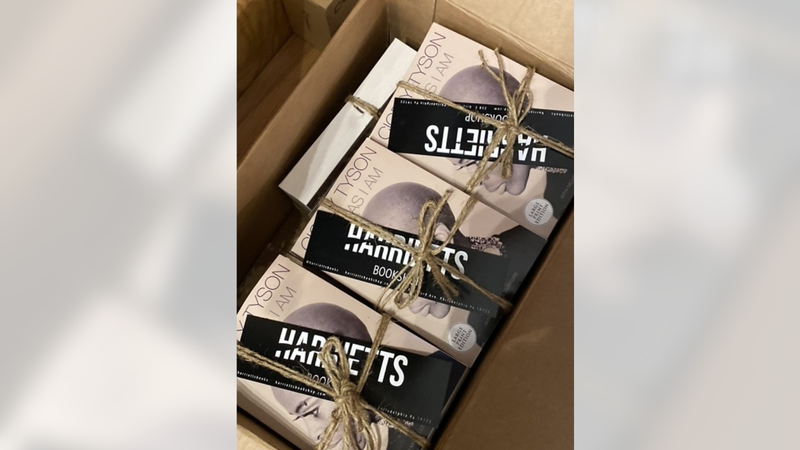
Cook channels that spirit in the events she hosts at her bookshops and in the way she supports other Black women in Philadelphia.
“[Harriet] talks about how when she got here…she looked over herself and everything looked anew,” Cook said. “But she couldn't fully embrace it, because she wasn't with her people.”
She said, similarly, Harriett’s is just one of many Black woman-owned businesses in the city. “Not as many as could be, or should be, but we are a part of an ecosystem.”
In addition to the shop, Cook organized the Sisterhood Sit-In Trolley Tour, which takes riders to several Black woman-owned businesses in Philadelphia. It runs every Saturday in February and March.
For more information or to order from Harriett and Ida’s Bookshops visit their website.
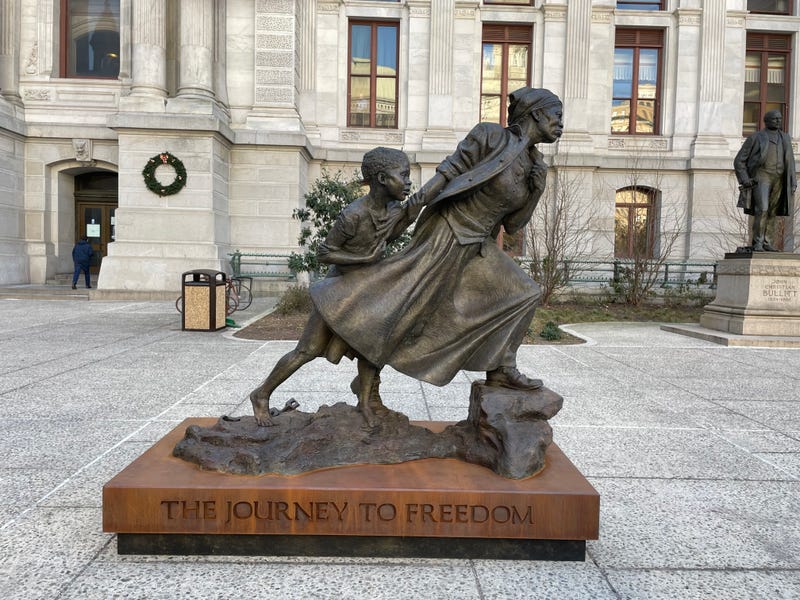
Harriet Tubman Statue
Last year, Philadelphia hosted a traveling statue of Tubman, created by artist Wesley Wofford, outside City Hall as part of the city’s celebrations for Tubman’s 200th birthday. The city later commissioned a permanent statue by Wofford, a white man, which many city residents took issue with.
A group of those residents formed the Celebrating the Legacy of Nana Harriet Tubman Committee, asking the city to open up a broad search for an artist to design the new statue. Maisha Sullivan-Ongoza says the committee took issue with the city’s process, which should be open and transparent.
In response, the city put out an open call for artist submissions. But submissions closed on Jan. 29, and Sullivan-Ongoza says she hasn’t heard any updates since then.
“We haven't had any updates on how many [submissions] they received, who's going to be reviewing it,” she says. “We want to see who submitted and what criteria are they using for selecting? And we feel as though it's not enough. We want them to open the process again.”
While the fate of the statue is still unknown, the Harriet Tubman Museum, Johnson House, Harriett’s Bookstore and other Underground Railroad sites around the region will carry on Tubman’s legacy.
To learn more about these sites and the story of Harriet Tubman’s time in Philadelphia and the surrounding areas, check out The Jawncast in the player below or wherever you listen to podcasts.

